How AI Enables Cloud-based SaaS Applications for Remote Work
The COVID-19 pandemic led to the widespread adoption of remote work across all industries. Organizations without remote work capabilities faced significant challenges in finding a reliable solution.
As a result, migrating to SaaS-based and cloud-based applications became the most feasible and popular solution, although it required a substantial amount of investment.
According to Gartner, the total expenditure on cloud-based SaaS applications reached $171,915 in the year 2022. However, integrating SaaS apps can be a complex and time-consuming process, leading to higher costs due to repetitive tasks.
This is where AI can be beneficial, as it can automate these repetitive tasks, saving time and resources for more critical tasks. This article explores various aspects of how AI can improve remote work capabilities.
What do you mean by SaaS?
Software as a Service (SaaS) is typically a cloud-based service that allows users to access web-based applications using an internet browser. So you need not download a separate software on your desktop or business network.
SaaS applications can range from basic tools like online typing tools such as WordCounter to more complex platforms like Salesforce or HubSpot.
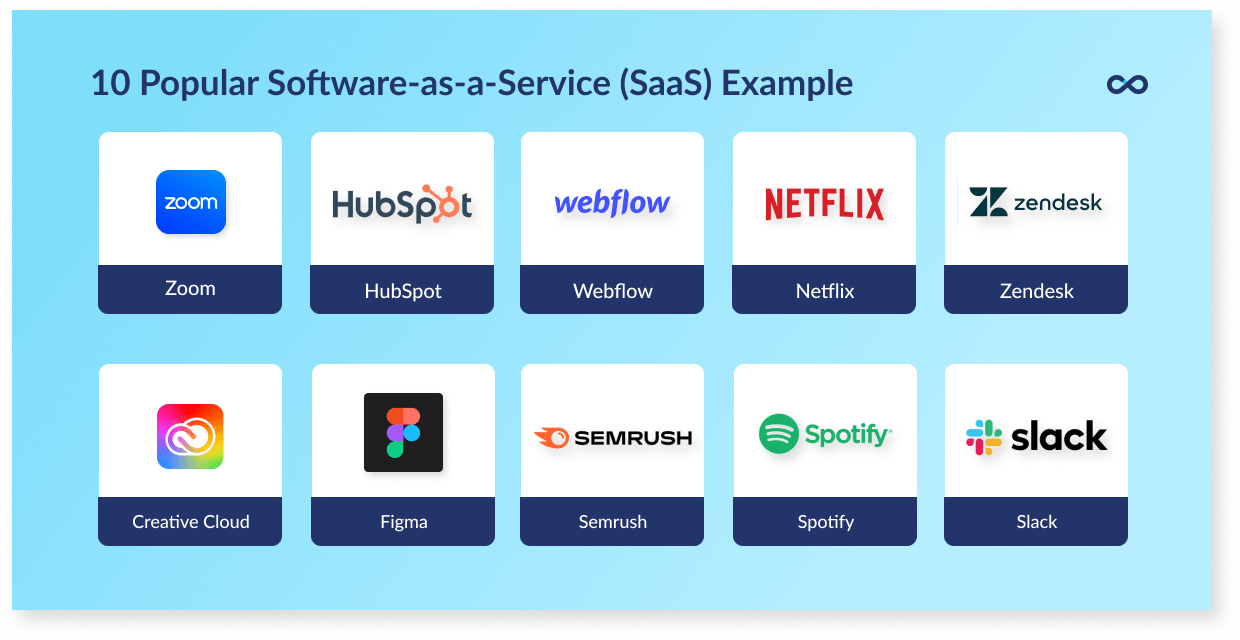
How does SaaS work?
In the past, and even now, most software required users to download installation files and install them onto their hardware. This process was time-consuming and needed more collaboration.
For instance, if an organization has 50 employees who need to use the software, each employee would have to download and install the software on their respective systems, such as desktops.
As the software is on-premise, employees cannot share information and communicate with each other. However, SaaS is hosted on a platform where the administrator no longer has to worry about hardware maintenance or software updates. In this case, the provider takes care of maintenance and updates, not the user.
Here’s a quick overview of how SaaS work if you’re unsure of what it means:
What are AI-based operations?
With the increasing popularity of cloud-based SaaS applications for remote work, Artificial Intelligence (AI) is becoming increasingly important to support them.
As the usage of SaaS and cloud-based technologies grow, so does the consumption of enterprise content. Similarly, the demand for SaaS platforms that are scalable and AI-based operations or AI-Ops has also gone up.
AIOps is a multi-layered technology platform that goes beyond the current SaaS-based IT capabilities. AIOps can help in:
- Overcoming remote work challenges
- Enhance working capabilities to develop an AI-powered SaaS-based service
- Integrate machine learning and analytics to provide intelligent operational excellence
It first utilizes Big Data and aggregates information from various sources within your organization. Then, it uses ML algorithms to respond to unexpected changes in SaaS-based operations and analyze various parameters.
The key components of AIOps are big data and machine learning. In addition to device monitoring tools‘ logs and records, these platforms require data from various sources, including security systems, operational analytics, and CRM technologies.
Ways in which AI is Enabling Cloud-based SaaS Remote Applications
1. Content Delivery
When a business has a large number of resources, it is important to have reliable solutions that can deliver content seamlessly across all platforms while ensuring a great user experience.
For instance, the images and videos required in the content may cause slow loading times if the network is not reliable.
Organizations typically use Content Delivery Networks (CDNs) to handle any performance glitches and loading challenges to ensure the timely delivery of content. AI-based CDNs can improve the loading speed of SaaS apps and enhance the overall customer experience.
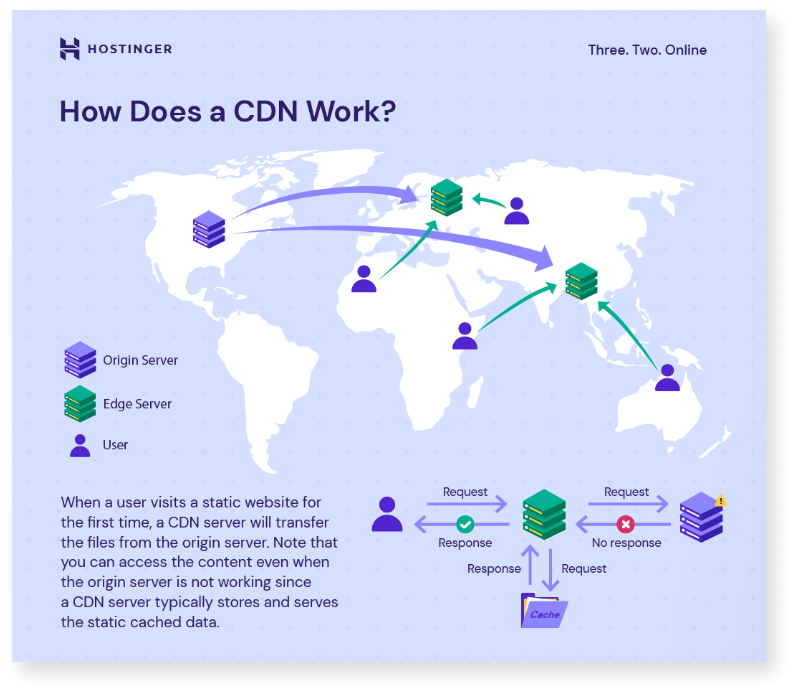
These CDNs use an auto-deployment pipeline that is triggered by ML algorithms, resulting in faster and more efficient content delivery. Customized trigger functions can be created per the business’s specific needs.
2. Customization
Customization is essential to ensure that a SaaS solution meets the specific requirements of a business.
In order to achieve this, it may be necessary to customize trigger functions for the apps that are part of the SaaS strategy.
Once the AI integrations have been planned, the next step would be to evaluate existing apps and identify the functions requiring triggers.
For example, if you are developing a SaaS app for marketing purposes, you need to define trigger functions such as follow-up emails and auto-replies.
Seeking advice from experts can be helpful in understanding and implementing these functions effectively. Remote developers can also be hired to assist in developing the necessary trigger functions.
3. Leveraging as a software
When integrating third-party solutions with SaaS applications, AI software can be used to facilitate the process.
For example, suppose you want to incorporate specific marketing solutions into your CRM program. In that case, AI algorithms can help create customized APIs that are tailored to the vendor’s environment and easily integrate with SaaS-based CRM applications.
Traditionally, most companies create unique APIs for these connections, which requires building the API from scratch. However, using AI can simplify this process by adapting scripts for the new environment with just a few adjustments, resulting in less time spent on API development.
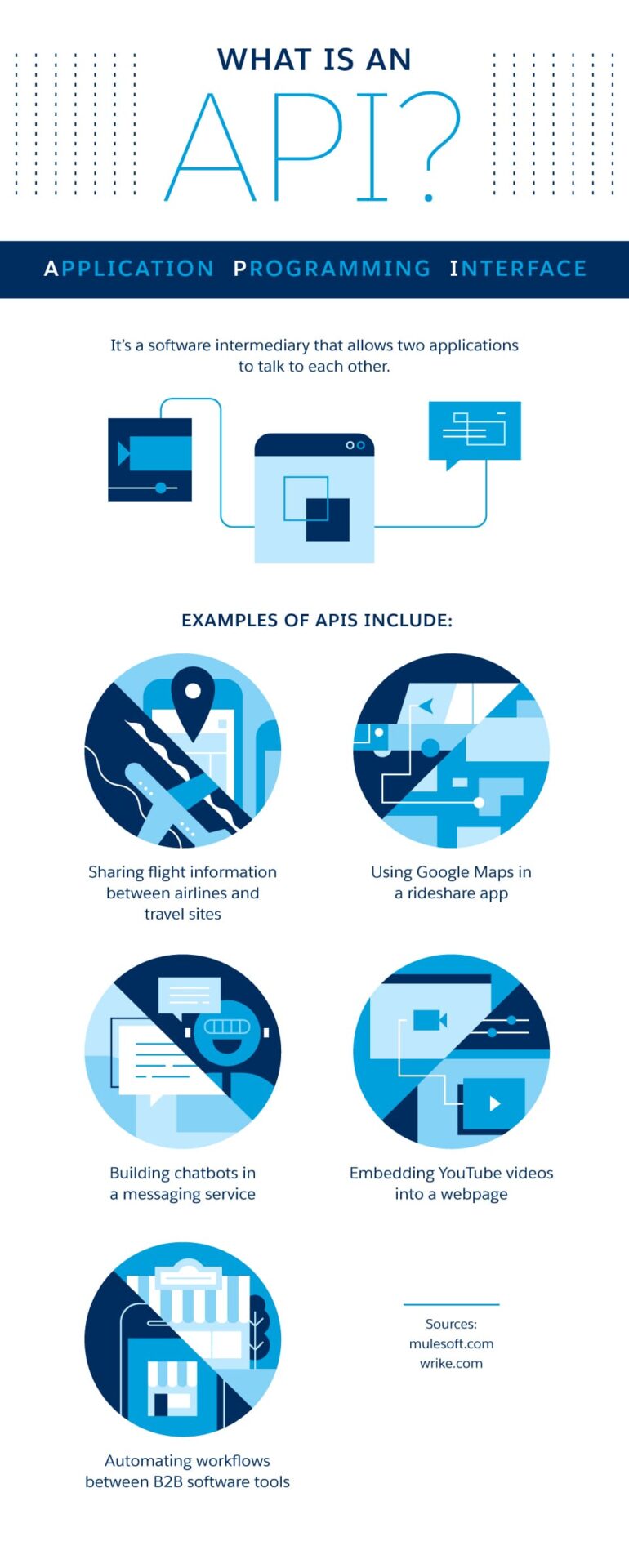
While some frameworks offer reusable scripts, they may not be adaptable to different contexts, and remote integration will require deploying APIs to cloud platforms, smart features, and intensive asset monitoring.
To address these challenges, businesses can use software that leverages AI to monitor tools and remotely track deployment across various settings. AI can also help overcome the obstacles of SaaS migration by facilitating remote deployments.
4. Mitigating risks
Security has always been an important priority for organizations, and this becomes even more crucial when all employees are working remotely.
AI can greatly help reduce the risks associated with SaaS applications. By identifying patterns and evaluating human behavior, AI can assist in detecting potential threats.
Machine Learning can also be used to simulate hacker activity and identify risks in advance. Companies can invest in AI-based cloud security services to detect any unusual activities and prevent online crimes. This not only acts as a deterrent to potential security breaches but also protects businesses from fraud and other security risks.
5. Advanced AI Ops
The adoption of SaaS and cloud-based solutions is on the rise, which is increasing the consumption of enterprise content. This shift in content consumption and the demand for scalable SaaS platforms is driving the need for AIOps, or AI-based operations.
AIOps is a technology platform with multiple layers that goes beyond current SaaS-based IT capabilities. By utilizing AIOps, it is possible to develop a SaaS-based solution powered by AI, which can enhance remote working capabilities. AIOps incorporates analytics and machine learning algorithms to provide intelligent operational excellence.
The AIOps platform uses Big Data to aggregate data from various resources across the organization. Then it deploys ML algorithms to facilitate real-time actions in response to sudden changes in SaaS-based operations. Detailed analytics are provided on various parameters.
Conclusion
SaaS or cloud-native software platforms are constantly developing. Many beneficial updates are being made to keep pace with the needs of remote workers.
AI has made it simpler and more secure for companies and their employees to use these platforms. Companies can provide all their services more effectively while safeguarding the privacy of all data.
Employees can work productively from home using SaaS and cloud-based apps. If your company needs any AI integrations on SaaS apps, hiring remote developers with experience in this field is recommended. They will assist you in making your platform more secure without compromising the customer experience.
Contact us today if you need any help or consultation related to software development.


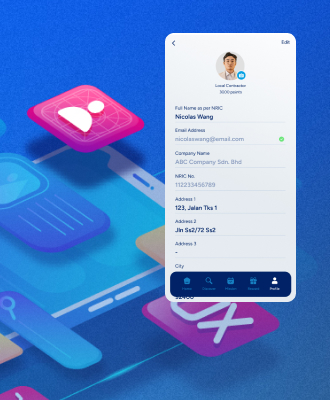
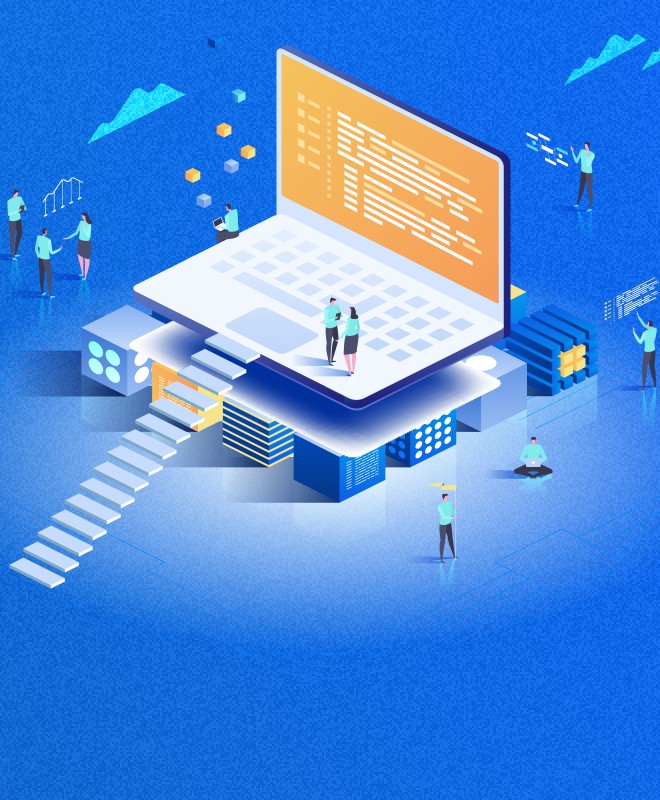


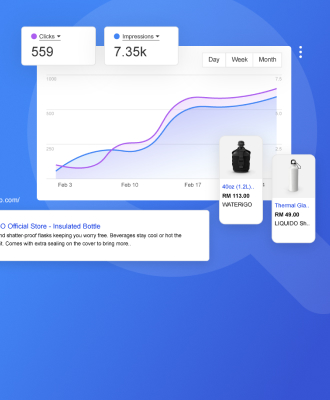
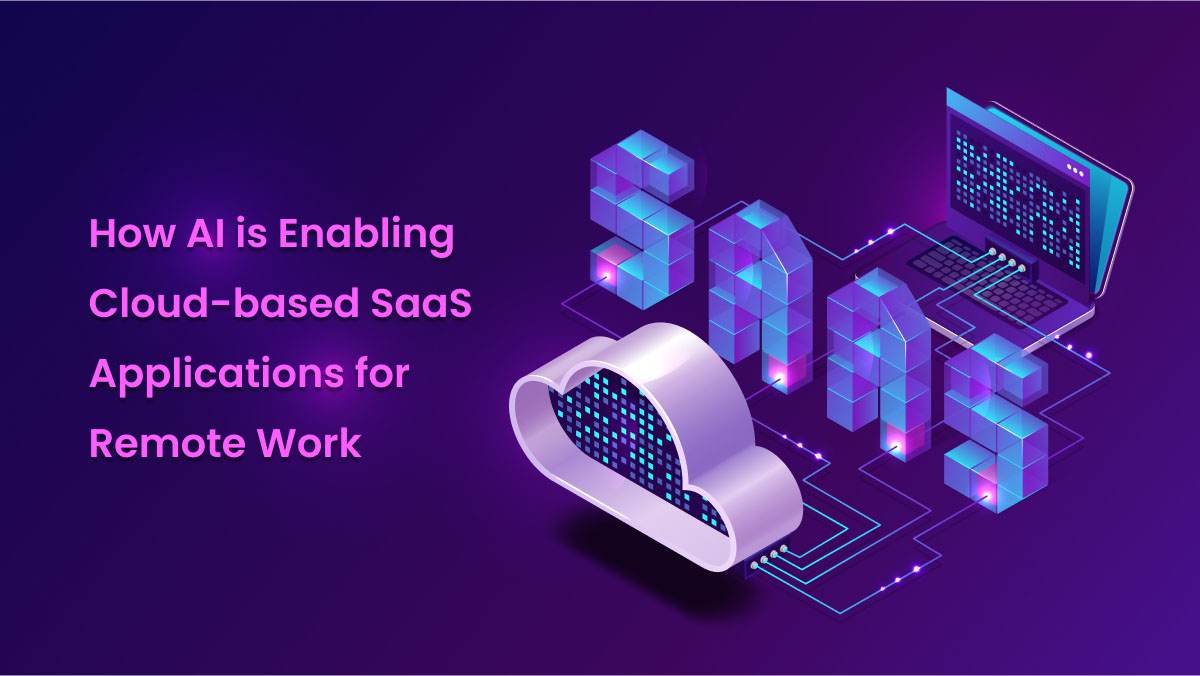




Leave A Comment